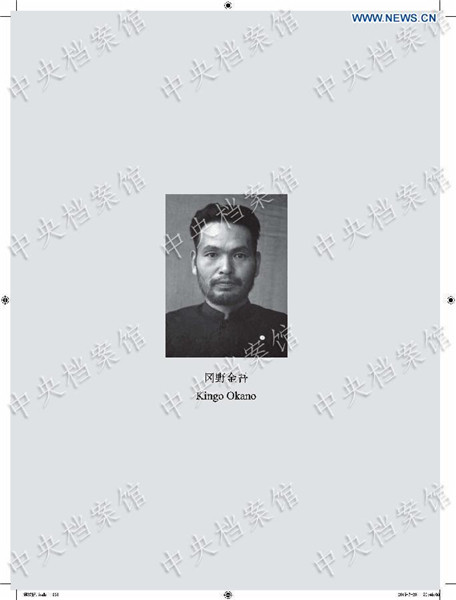Japanese war criminal confession reveals bacterial warfare massacre
(Xinhua) Updated: 2015-09-01 20:50
 |
|
Photo released on Sept 1, 2015 by the State Archives Administration of China on its website shows the image of Japanese war criminal Kingo Okano. [Photo/Xinhua] |
The State Archives Administration (SAA) published the hand-written confession by Kingo Okano, who was born in 1912 and joined the invasion army in 1937. He was captured in August 1945.
According to the document, Okano said he killed two captured anti-Japanese soldiers in north China's Hebei province in 1937. He also captured a man and woman and "forced them to have sexual intercourse in front of us and beat them", the confession said.
He confessed that in May 1938 he "beat and tortured" a captured man for two weeks and "beheaded him with a katana" in Chengde, where he also broke into a Chinese house, "threatened the wife with my own power, sexually assaulted her in the inner room, and infected her with gonorrhea."
Okano said that in May 1939, he was ordered to transport 250 POWs of the Eighth Route Army and "hand them over to the headquarters of the Fourth Army," who "enslaved them and later killed them all, with some used in a bacterial experiment."
Okana confessed that in October 1940 in northeast China's Jilin province, he worked with puppet police to assist 200 military doctors in conducting so-called "epidemic prevention". He "had 5,000 people in town injected, broke into houses to force disinfection and dissected 50 people to conduct experiments to prepare for bacterial warfare," the confession stated.
Okana also confessed he provided intelligence in August 1945, the result of which was that a squadron "fired at about 2,000 rioting Chinese with machine guns and shot dead 150 of them."
This was the 22nd of 31 written confessions by Japanese war criminals to be published on the SAA website to mark the 70th anniversary of the end of WWII.




